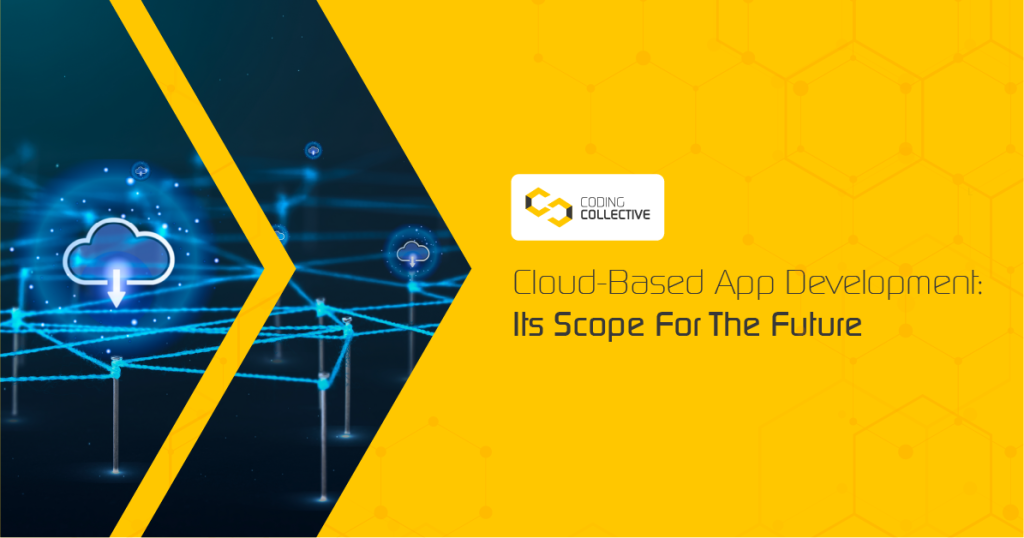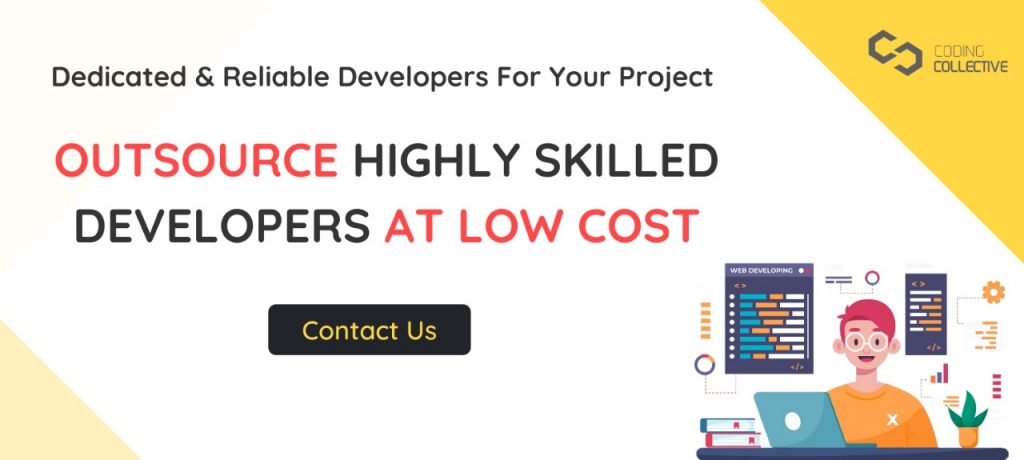
Cloud computing is a rage in the present business landscape. Several reports state that with the expansion of business mobile applications, storage capacity and performance are significant issues for over 70% of the digital workspaces. The best possible approach to deal with such challenges is cloud computing.
A. What Is Cloud-Based App Development
Cloud-based application development solutions make data collecting more convenient for businesses. On top of that, security and management are simplified to a greater extent. Cloud app development allows modern businesses and enterprises to create productivity-based applications to enhance the customer experience and revenue. Not only this, but Cloud software development solutions also enable businesses to invest in low-code app development which is again a time- and cost-effective process.
B. Characteristics Of Cloud-Based Apps
To end users, cloud-based applications often don’t look any different than other kinds of applications. That’s intentional as they are meant to provide the kind of functionality and front-end interface that people are used to, with some key differences on the back-end.
- Cloud-based applications use caching to enable fast data retrieval and performance. Most of the data is stored in the cloud, but storing copies of the most frequently used data on users’ machines improves speed and provides a smooth user experience.
- Unlike web applications, cloud-based applications can operate offline. To do this, the apps temporarily store data on the user’s device and then sync it to the cloud when there’s an internet connection.
- Cloud-based apps offer a consistent experience across all devices and browsers. Whether you use a smartphone, tablet, laptop, Mac, or Windows machine, the app will work the same way and give you the same user experience.
- APIs form the link between the cloud infrastructure and cloud-based software. This configuration enables unlimited customization options for new features and enhanced performance.

C. Different Types Of Cloud-Based Solutions Available For Enterprises
Cloud computing technologies consist of various services and resources such as databases, data servers, storage, etc., that are run by third parties. The third party authorizes the computer reserves and its infrastructure on a free or paid basis. In short, you can avail the services, resources, and space without worrying about infrastructure maintenance. Based on the end user, there is four types of cloud deployment methods:
Private cloud – These functions as a private web system with a secure space for applications, web, and data. Private cloud service is utilized by one company without any public access.
Public cloud – Data in the public cloud resource is only accessible through an authorized device. Public clouds usually offer optimal price and flexibility with data processing.
Hybrid cloud – Hybrid for cloud app development is considered both public and private. Here you can distribute the data among on-device services and third-party apps along with additional variants for deployment and optimization.
Community cloud – Community cloud deployment is similar to private cloud, except here, the data sharing is between two (multiple) organizations. For instance, the government of a country has various departments internally that need the same infrastructure and resources, and that’s where the community cloud comes to use.
Just like the deployment services, there are various cloud application development solutions available for enterprises. Three major cloud-based app development solutions are:
Software as a Service (SaaS)
SaaS stands for creating cloud applications using web browsers and mobile apps. SasS lets customers access the applications online without actually having to configure or install them on the device. This is used for:
- Managing CRM and databases of clients
- Automating services and products sign-up
- Providing auditing features and email tools etc.
- Sharing agendas and calendars across the entire organization to plan future events
- Managing documents for file sharing and collaboration.
Platform as a Service (PaaS)
PaaS allows renting every resource and service you need to develop an application relying on cloud providers for infrastructure, operating systems, and development tools. This means an entire cloud application platform will be taken (software and hardware) as a service for developing cloud applications. PaaS can be used for:
- Operating systems
- Database running infrastructure
- Development tools
- Middleware
Infrastructure as a Service (IaaS)
In IaaS cloud services, the cloud provider manages the entire business infrastructure, including network, server, storage, and visualization. This infrastructure can be managed by a private or public cloud. Moreover, along with controlling the resources, IaaS cloud services offer tons of additional services for cloud-based app development like:
- Detailed invoice
- Tracking
- Resiliency tools (backup recovery and replication)
- Log access
- Security instruments ( PCI-DSS compliance, data encryption protocols)
- Load balancing
- Clustering
D. Developing A Cloud-Based Application
Cloud application development ranges from mobile development services to web development services. Before development, you need to understand and identify your target audience, pain points, and demand in the required app. Then analyze how your product can resolve its challenges.
1. Hire a cloud development team
You are more likely to build a successful app when you outsource cloud development services. A reliable cloud app development company can get you a quick business model analysis, app development cost approximation, and project planning report. Before diving into the actual development process, your cloud application developers will help you create an app workflow, choose the MVP features of the app and design the app concept.
2. The architecture and features
For efficient cloud-based app development, you need to put in the aspects such as service model, app architecture, and cloud migration. These decisions directly affect your app’s performance. Hence, it’s important to discuss with your outsourced team what’s best. You can safely develop apps and employ cloud solutions easily due to simplified cloud architecture. Experienced cloud app developers recommend using advanced cloud architecture built on microservices. You can choose any kind of cloud deployment service discussed above (IaaS, SaaS, PaaS) for the service model. Further, you can move your company’s data to the cloud server for better accessibility and processing using cloud migration.
3. Defining the tech stack
When choosing tools for creating cloud applications, you must analyze requirements, features, and designs that fit your app. Also, keep in mind the scalability factor while choosing the tech stack. Below is a common tech stack for creating simple and advanced cloud-based applications.
4. Choosing an app monetization model
Now that you know what your audience needs, you can predict what your users will pay for. Here are four monetization models you can choose from:
- Paid
- In-app purchase
- Freemium
- Advertising
5. Development and testing
Cloud solutions are developed in accordance with Scrum and Agile methodologies. Cloud-native applications development is extremely important when building such solutions since they offer higher customization with hassle-free processes. Testing the product using various QA processes is mandatory before releasing it. This conforms if your cloud application provides desired user experience. Outsourced full-cycle development companies offer design, development, testing, and management services that result in higher product quality.
6. App launch and maintenance
Finally, you can release your cloud app on Google Play (Android) or App Store (iOS). Google Play works on automated testing to specify the app approval process. However, Google doesn’t mention why your app is rejected in the result. Google Play also does not charge its analogous fee.

E. Cost Of Development
The cost of developing a cloud software platform or application relies on :
- Product design and features
- Location and rate of your outsourced development team
- Project size
- Technology stack
- Timeframe
For a rough cloud app development cost estimate:
- Usually, SaaS cloud development services can cost as low as $500 to as high as $500,000, depending on what is being built.
- A basic cloud application requires 200 to 600 hours of development time and may cost around $15,000 based on the team input.
- A medium to complex cloud application takes around 800+ hours of development time and will cost in the range of $25,000 to $50,000 approximately
The above range does not include the cloud hosting prices. You can choose any hosting platform from AWS to Microsoft Azure or GCP cloud hosting.
